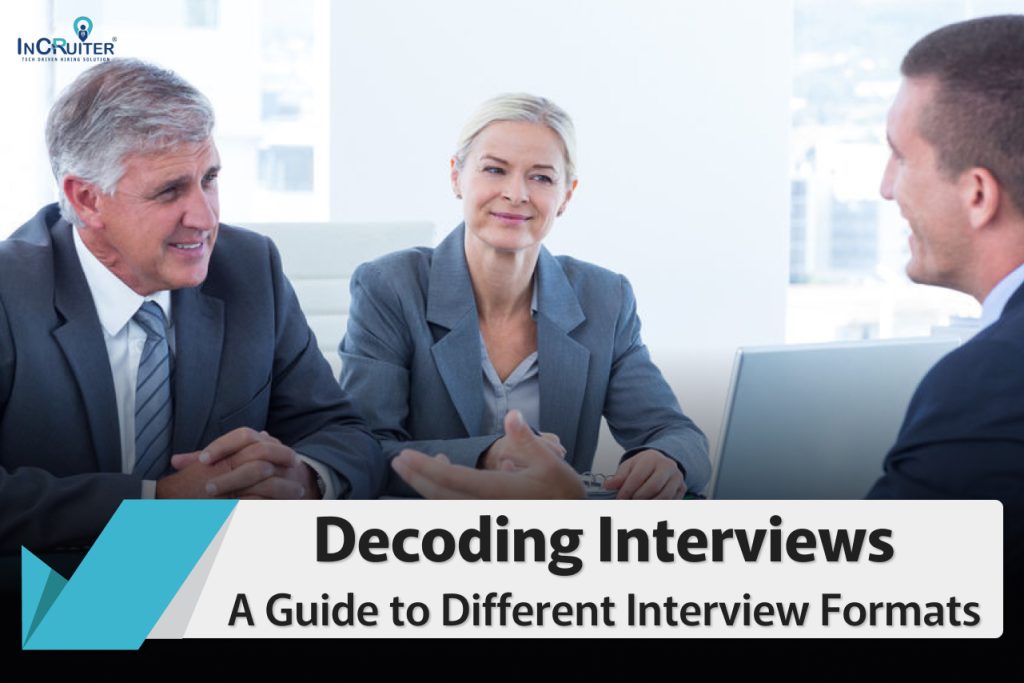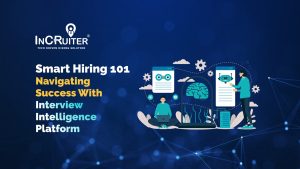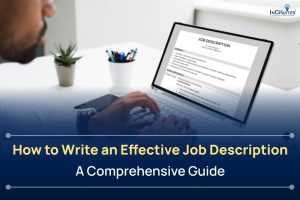
Whether you are looking to build a dream team or want to expand it, interviews play a crucial role.
But how can you ensure you conduct a successful one? Well, this is where an interview format comes into the picture.
A job interview format is the basic structure and method of the interview, which includes types of questions, interview location, etc.
Now, let’s say, you are hiring for a technical role. Instead of scheduling myriad interviews based on resumes, you can first start with portfolio interviews (a type of interview format) to see if the candidates’ work aligns with what you are looking for. This saves time and effort and helps you reach the end goal faster.
Today, we walk you through all the top interview formats and more ahead. Let’s unpack!
Also read: ATS
Interview Formats vs Interview Styles
When we say interview formats, it means a structured arrangement of interviews, such as the type of questions asked or the methodology used. From remote to group interviews, they all fall under interview formats.
However, an interview style is the manner or approach you use to conduct interviews, such as friendly or formal. Interview formats and styles must complement each other for a wholesome output.
Also read: Best interview questions for data analysts in 2024
Top 6 Types Of Interview Formats

Below, we bring you the top six interview formats that are commonly used by recruiters. You can either opt for one or club multiple formats together if that suits the role.
Structured Interviews
The most common interview format is the structured interview. It is usually formal and you ask the candidate questions from a list of pre-set questions pertaining to the role.
This helps you thoroughly evaluate candidates and check if they are the right fit. Structured interviews also help you narrow down the perfect set of candidates who stand out and possess the necessary knowledge crucial for the role. This interview format is great for technical roles, entry-level positions, and large-scale hiring.
Unstructured Interview
Unstructured interviews are the opposite of structured ones. Here, you set an informal or casual setting to get to know the candidates well.
While the conversations will definitely revolve around the role and candidate’s skills, this format takes a conversational approach.
This type of interview gives you an insight into candidates’ personalities and thoughts. Unstructured interviews are suitable for creative roles and senior positions.
Behavioral Interview Format
Here, you can ask candidates to share past experiences that show you specific skills or behaviors relevant to the job.
This format focuses on how candidates have handled situations in the past, which helps you understand and also predict future performance based on the same.
It can be a perfect interview format for leadership roles, HR and management roles.
Also read: Understanding structured and unstructured interviews
Group Interview
Group interviews are generally conducted to speed up the interview process, where you club multiple candidates together to initiate a discussion.
One or more interviewers may host this format and it helps gauge a few crucial skills, such as how competitive the candidate is, their listening skills, how well they perform under pressure, etc. You can try group interviews for team-based roles, customer service positions, entry-level positions, and large recruitment drives.
Panel Interview
A panel job interview format is when a candidate meets with multiple interviewers at the same time.
Here, candidates face different perspectives and questions from various team members. This tells you how well candidates handle stress, communication skills, and more.
This can be ideal for senior-level positions and leadership roles.
Project Interview
A project interview can be great for technical positions, creative roles, and even consulting jobs because it lets you go through a candidate’s skills.
Here, you devise practical tasks or projects related to the job they are applying for to get a feel of their capability. For instance, if you are hiring a designer, a sample project helps you understand their caliber.
Other Less Common Interview Types
Here are some other underrated interview formats you must know about as they may come in handy for crucial roles.
Stress Interviews
As the name suggests, stress interviews are designed to see how candidates behave under stress and whether or not they can handle pressure. It is perfect for leadership roles that help you evaluate a candidate’s quick thinking.
Lunch Interviews
Also referred to as meal interviews, they are conducted in an informal setting to see if the candidate fits into the company’s culture. Where you mostly have a conversation to get to know the candidate better.
Portfolio Interviews
Portfolio interviews are common in both creative and technical roles where you first focus on reviewing the candidate’s past work or projects to see if their expertise matches your requirements. This saves a lot of time and energy for both the recruiter and the candidate.
Speed Interviews
Speed interviews are a series of quick, back-to-back interviews to evaluate multiple candidates in a short span of time.
Competency-Based Interviews
In this interview, specific skills or competencies relevant to the job are tested. Again, they can be ideal for high-level roles.
Walk-in Interviews
Here, candidates can arrive without an appointment and be interviewed on the spot.
Also read: Top 10 Data Engineer interview questions in 2026
The Final Word
Now you know everything there is about the top job interview formats. When used correctly, they can help you streamline your interviews and accelerate the entire process.
That said, also make sure the interview format you choose should align with your goals and company values. Infact, it doesn’t have to be a standard format for all job roles. Instead, you can customize it as and when required for your advantage.
The right interview format helps you find the perfect candidate and makes the whole process easier and quicker.
There is also another way to simplify your process and make it all the more convenient. We are talking about an Interview-as-a-Service platform like InCruiter. From expert-led interviews to AI-based recruitment, InCruiter brings forth a plethora of tools that make hiring easy.
Also Read: Ever-growing demand for interview-as-a-service market post pandemic
So, what are you waiting for? Say yes to faster and effortless hiring with InCruiter today!
Ready to Transform Your Hiring Process?
Discover how our AI-powered interview platform can streamline your recruitment and find the best candidates faster.






